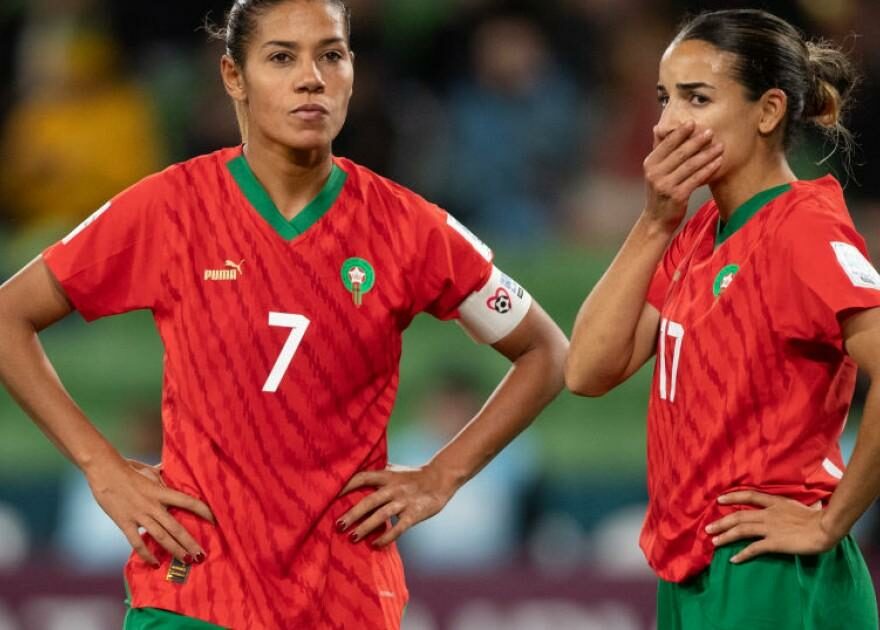To view this video please enable JavaScript, and consider upgrading to a webbrowser thatsupports HTML5video
The BBC has apologised for an ‘inappropriate’ question one of its journalists asked the captain of the Moroccan football team during the Women’s World Cup.
Ahead of the country’s game against Germany, captain Ghizlane Chebbak fronted a media conference to answer questions.
However one about the experiences of LGBTQI+ people in her home country was promptly shut down.
During the press conference a BBC reporter asked: ‘In Morocco, it’s illegal to have a gay relationship. Do you have any gay players in your squad and what’s life like for them in Morocco?’
Quickly jumping in, the press conference moderator interjected, saying: ‘Sorry, this is a very political question, so we’ll just stick to questions relating to football.’
The journalist then reportedly replied that it ‘wasn’t political’.

‘It’s about people, it’s got nothing to do with politics. Please let her answer the question.’
The press conference then moved on, with one further question asked before the proceedings wrapped up.
After being approached to comment on the exchange, the national broadcaster apologised for what was asked.
‘We recognise that the question was inappropriate,’ it told CNN.
‘We had no intention to cause any harm or distress.’

As reported by CNN, The Athletic’s Steph Yang, who was in the room, said that ‘some members of the Moroccan media were audibly dismayed by the question’.
Shireen Ahmed, a reporter for CBC Sports who was also in the room, wrote that the reporter was ‘completely out of line’.
‘Harm reduction matters and posing the question to the captain or coach was unnecessary,’ she posted on Twitter.
‘Asking a player about her teammates and whether they are gay and how it affects them when you know it is not permissible is bizarre and out of line. The captain cannot out players nor comment on policy bc [because] it could be dangerous for them, too.’
She added: ‘If reporting harms someone, it is not only unethical but dangerous.’
According to Human Rights Watch, Moroccan law criminalises what it refers to as acts of ‘sexual deviancy’ between members of the same sex.
Same-sex relationships can be punished with prison terms of up to three years and fines of up to 1,000 dirhams (£79).
Morocco was later beaten 6-0 by Germany in its opening match.
Metro.co.uk has contacted BBC for comment.
The Women’s World Cup is available to watch on BBC and ITV.
Got a story?
If you’ve got a celebrity story, video or pictures get in touch with the Metro.co.uk entertainment team by emailing us [email protected], calling 020 3615 2145 or by visiting our Submit Stuff page – we’d love to hear from you.
Source: Read Full Article
